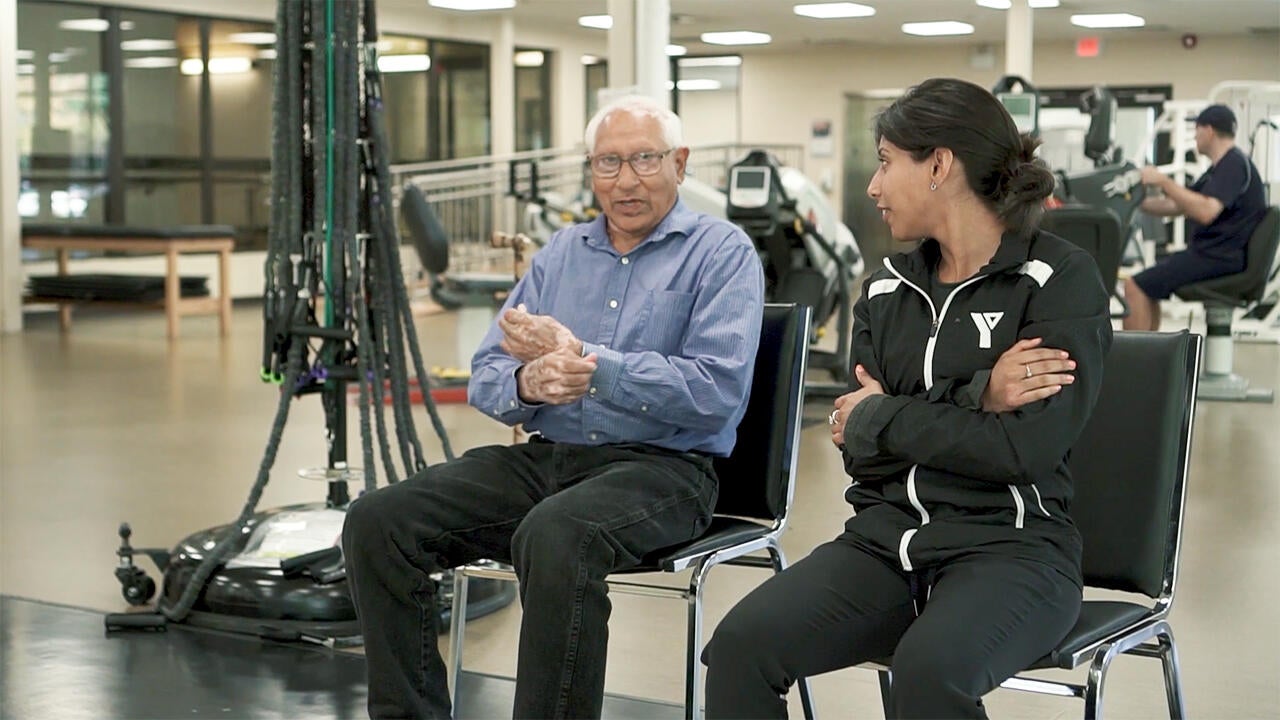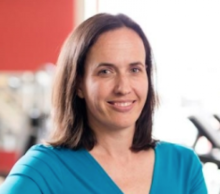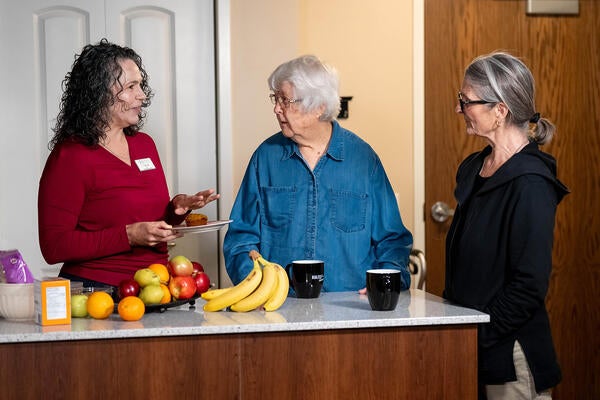
DREAM resources support the health and wellness of persons living with dementia
Waterloo-led research team launches new learning modules

Waterloo-led research team launches new learning modules
By Faculty of HealthMany things change with a dementia diagnosis, but support for your health and wellness should not be one of them.
The Dementia Resources for Eating, Activity, and Meaningful inclusion (DREAM) project is a cross-Canada research team, led by the University of Waterloo alongside the University of Northern British Columbia (UNBC). It brings together 40 people and 15 organizations, including the Alzheimer Society of Ontario, Alzheimer Society of British Columbia and the YMCA of Three Rivers.
The DREAM project has developed a new series of learning modules and resources with an aim to improve how community service providers support and include persons living with dementia in their wellness programs and services, especially those related to physical activity and healthy eating. These resources are available in multiple languages on the new website.
 “Instead of specialized programs for people living with dementia, our learning modules and resources aim to give community service providers, such as exercise instructors, dieticians and those who provide cultural, religious or other community programming, the ability to adapt their current programs to be more inclusive of people living with dementia,” says Dr. Laura Middleton, a Kinesiology and Health Sciences professor at the University of Waterloo, who leads the project.
“Instead of specialized programs for people living with dementia, our learning modules and resources aim to give community service providers, such as exercise instructors, dieticians and those who provide cultural, religious or other community programming, the ability to adapt their current programs to be more inclusive of people living with dementia,” says Dr. Laura Middleton, a Kinesiology and Health Sciences professor at the University of Waterloo, who leads the project.
“Physical activity and healthy eating are important to maintaining health and function across the dementia journey,” says Middleton. “There are also social benefits – people living with dementia receive encouragement and support from program leaders and fellow participants.”
Waterloo alum Dr. Shannon Freeman (PhD ‘14, Health Studies and Gerontology) is a nursing professor who leads the project at UNBC. She says, “We want to help our community service providers across all areas of Canada understand dementia and how to support people living with dementia in their programs. Our resources de-stigmatize dementia and teach people how small changes can support inclusion.”
Community partners see important impacts stemming from the DREAM project. “Our goal is for our YMCAs to be accessible to all, including community members living with dementia,” said Crystal Hughes, the wellness director at the YMCA of Three Rivers. “The DREAM learning modules and resources will help our staff understand and support the needs of people living with dementia.”
“People living with dementia will benefit by having more programs and services available to them,” says Christina Stergiou-Dayment, senior director of provincial programs and partnerships at the Alzheimer Society of Ontario. “There are also social benefits to participating in community programs, including that people feel a sense of community and inclusion.”
DREAM provides learning modules that educate and train community service providers to understand dementia and support the needs of people living with dementia in their wellness program. These include education about the diverse changes with dementia, the rights of people living with dementia to supports for their health and well-being, the benefits of physical activity and healthy eating and dementia-inclusive approaches to communication, program planning and delivery, as well as facility design.

Read more
How machine learning empowers collaboration between computer science, math and medical research

Read more
Dr. Heather Keller discusses the need to transform mealtimes in Canada’s long-term care homes from a service to a meaningful form of care

Read more
“I’m just like you.”
The University of Waterloo acknowledges that much of our work takes place on the traditional territory of the Neutral, Anishinaabeg, and Haudenosaunee peoples. Our main campus is situated on the Haldimand Tract, the land granted to the Six Nations that includes six miles on each side of the Grand River. Our active work toward reconciliation takes place across our campuses through research, learning, teaching, and community building, and is co-ordinated within the Office of Indigenous Relations.